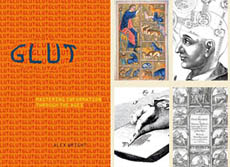Travellers and Magicians
January 10, 2005

Khyentse Norbu is a Bhutanese filmmaker and prot�g� of Bernardo Bertolucci, whose first film, The Cup, earned good notices at Cannes and other international film festivals.
When he's not directing, Khyentse also holds down a day job: as Dzongsar Khyentse Rinpoche, one of the highest incarnate lamas in the Tibetan Nyingma lineage (he also has a strong connection to the Shambhala community).
I had been wanting to see Khyentse's new film, Travellers and Magicians ever since I had a brief encounter with him last year at a screening of the excellent documentary Words of My Perfect Teacher.
"Travellers" tells the story of a Bhutanese government official, frustrated in his small-town bureaucratic gig, who dreams of skipping town for America. When his big break finally comes, he doesn't hesitate to ditch his job, his family and the local village in pursuit of his American dream.
No sooner does he set out than he finds the path pockmarked with obstacles. He misses the bus out of town, and soon finds himself wandering the highway in the company of an apple picker and a Buddhist monk, who tells him a cautionary tale of another man who set off in search of a "dreamland."
The parallel dream story takes the movie deep into noir territory, with a dark fable of fantasy, lust and murder. Picture a Himalayan Double Indemnity. The dream sequence unfolds in parallel to the main story, with the monk serving as the narrative linchpin.
Not surprisingly, the monk also serves as Khyentse's own mouthpiece, dispensing practical homilies (like goading the hero to quit smoking), and generally getting under the hero's skin at every turn - in the way good teachers do. But the monk is no preacher; he always withholds judgment, ultimately only holding up a mirror to the hero's own unfolding neurosis.
When the inevitable girl comes into the picture, the hero finds himself confronting another flavor of delusion. Finding himself torn between competing "dreamlands" - America and the girl - the hero must finally chart his course through his own maze of fantasy and desire.
Not wanting to give away the ending, let me just say that Khyentse admirably eschews the obvious Hollywood Ending in favor of a less comforting - but more illuminating - resolution. In the end, Khyentse's hero discovers that only by recognizing the dreamlike aspect of experience and attachment can he escape his own torrents of desire, and discover the possibility of liberation.
File under: Movies
_____________________« Musicplasma | Folksonomies and language »
GLUT:
Mastering Information Through the Ages
New Paperback Edition
“A penetrating and highly entertaining meditation on the information age and its historical roots.”
—Los Angeles Times
